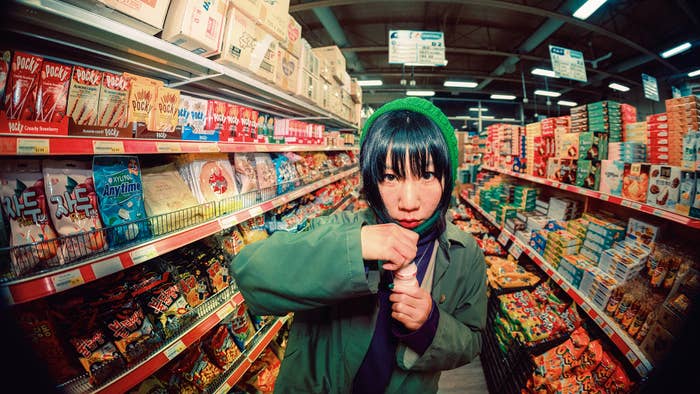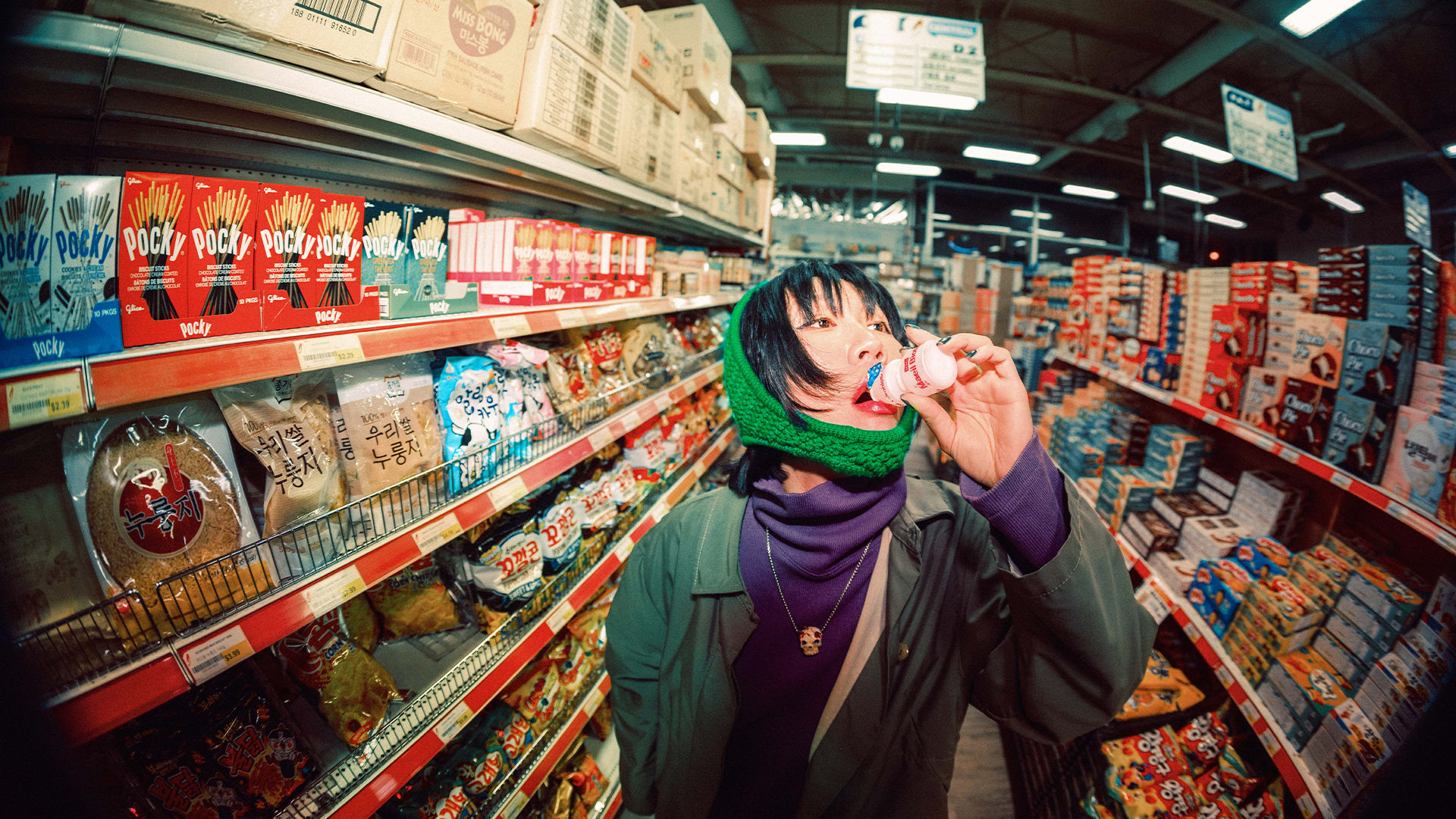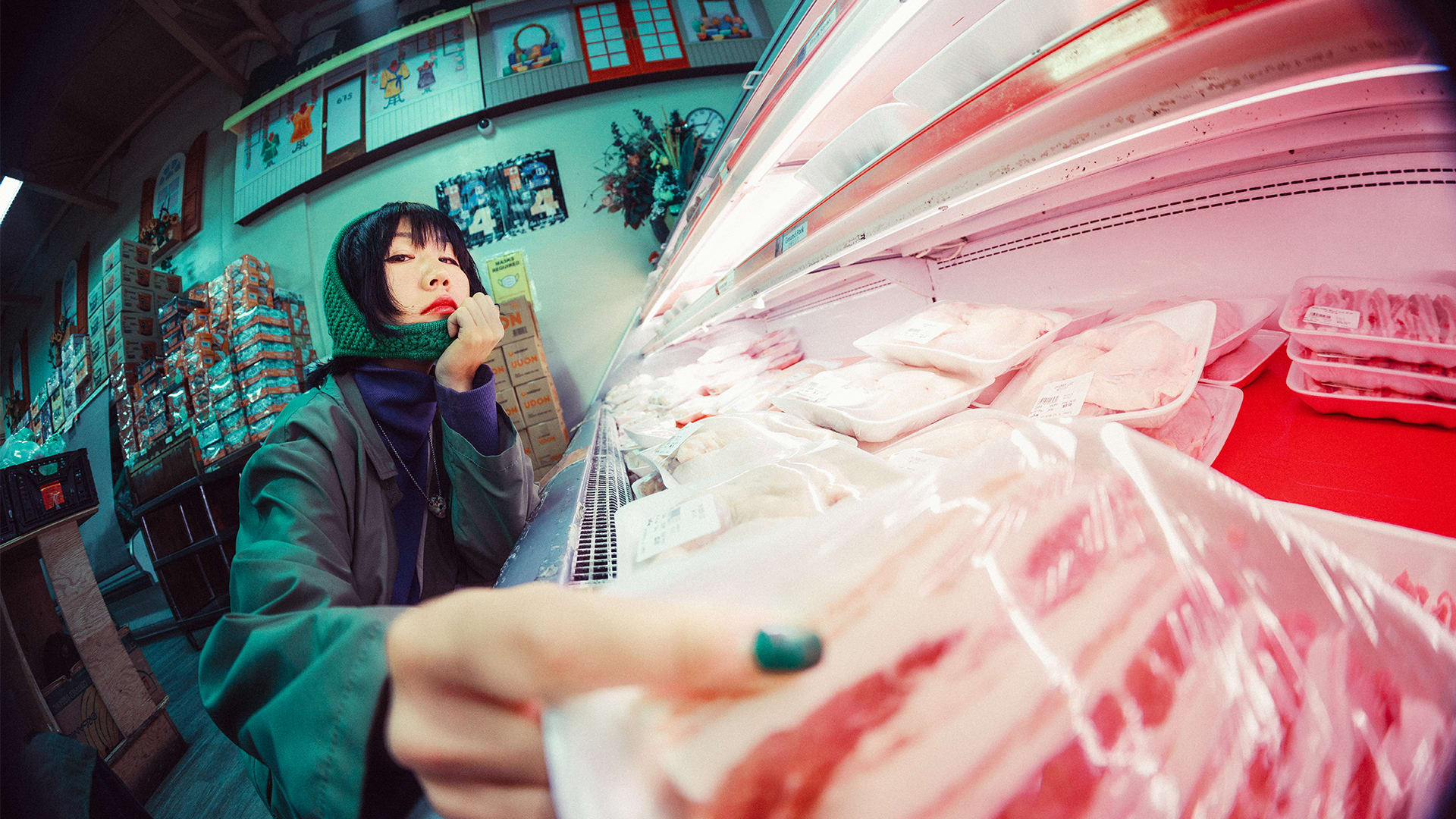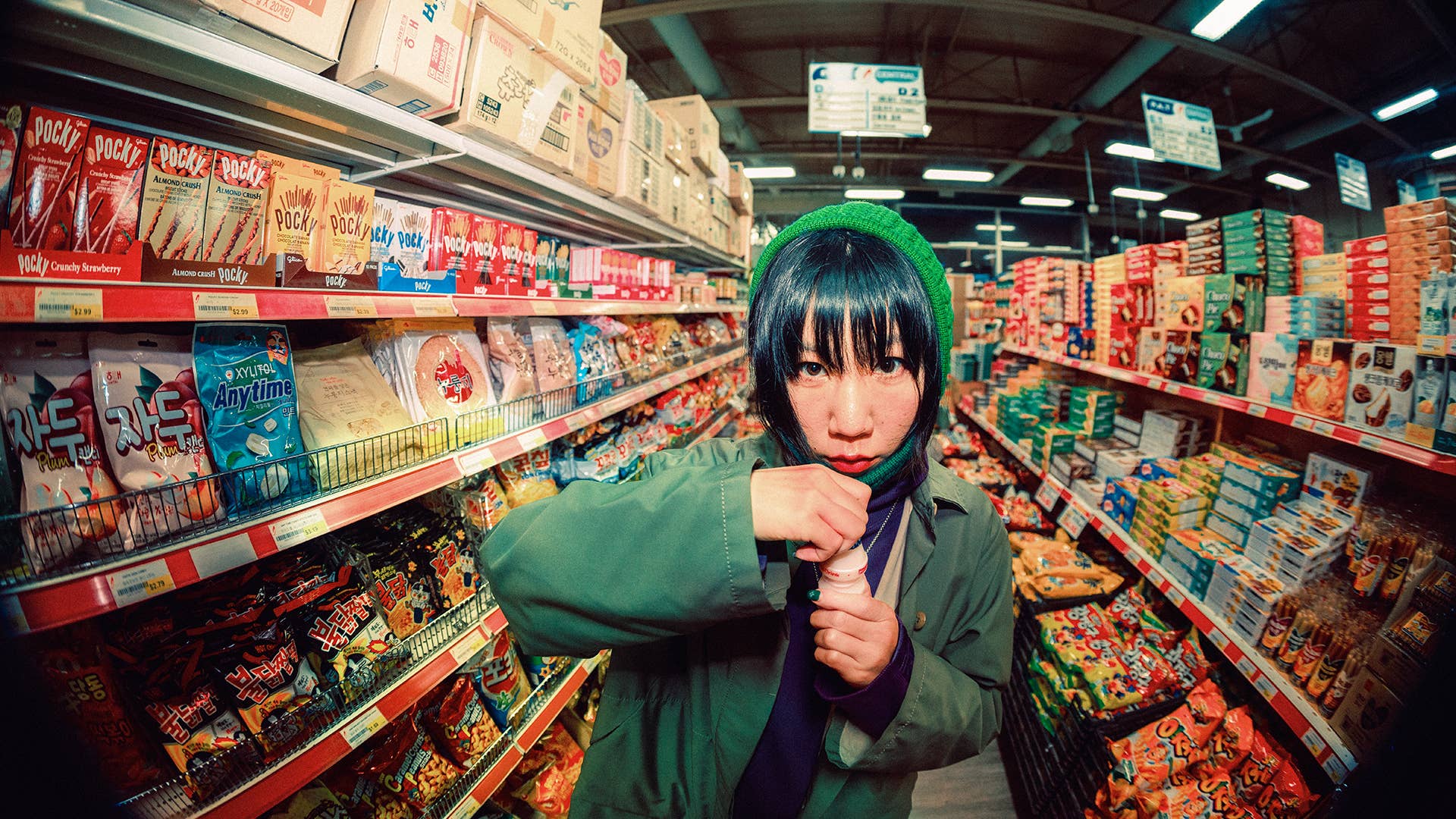
When the lockdowns lifted and musicians could once again get back in front of fans, Korea Town Acid (KTA) was even more excited than most of her fellow artists. After all, the hotly buzzed Toronto producer, born Jessica Cho, made a name for herself reading club crowds, and intuitively adjusting her onstage hardware. The result: eclectically improvised instrumentals to keep everyone on their toes in more ways than one.
All that ran counter to living under pandemic lockdowns throughout much of 2021’s first half. But KTA nevertheless reached new artistic heights during that period. Among them: releasing her breakthrough album Metamorphosis in April within days of her friend and elder collaborator Cadence Weapon dropping his latest LP Parallel World. The latter featured the KTA helmed track “Play No Games,” introducing her to the beloved MC’s fanbase.
The prolific producer didn’t rest on those laurels. After performing a number of sets this summer, KTA has just released a new album, Cosmos, today (October 22 ). She is eager for it to mark a new phase in her career. “Metamorphosis had a lot of rappers and shit on it, and wasn’t necessarily club friendly,” KTA told Complex about her last album, and how its follow up will be better suited for crowds eager to get back on dancefloors after months of being marooned at home. Inspirations for Cosmos and “Telepathic Communications” include boundary pushing Korean dubstep duo “XXX” and legendary producer Jimmy Edgar, one of her biggest influences (he was also featured on Parallel World, and it was a dream come true for her to be on the same project as that dancefloor icon).
And while KTA says she is releasing music that is a bit more “club friendly” because “things are picking up,” she also takes great care to strike the right balance with her art, and cater to no one. She sees this fresh material as “spicy but still easily digestible. Not too complex, but it still has some wonkiness to it. I don’t stick to one thing.”
“I’m my own worst enemy! We all are. Because it’s your temptation to go on YouTube and watch that stupid video for three minutes. Before it becomes three hours.”
Her return to live music couldn’t have come sooner. That’s because, when you’re Korea Town Acid, livestreaming a DJ set simply doesn’t cut it.
“The experience is not comparable. It’s the like eating a juicy, drippy bacon cheeseburger versus seeing a paper coupon photo from McDonald’s,” KTA said over Zoom during lockdown shortly after Metamorphosis’ release. While making that analogy she smacked her palms together and slid them apart, miming pawing at a lifelessly flat surface—a charmingly livewire habit of hand talking that she maintained throughout our interviews for this story (one took place shortly after Metamorphosis dropped; a follow up coincided with “Telepathic Communications”). When it comes to livestreams falling short of the gigs canceled during the pandemic, she added: “The smell of a basement club and people’s sweat, the lights and sound, the vibration—it’s all definitely not replaceable.”
And while she pined for those visceral sensations from playing live, KTA deftly adjusted to life under lockdown last winter and spring. Her album Metamorphosis was met with enthused reviews in April thanks to her engrossing blend of genres, dystopic distortion and dissonance, and the Seoul-born, Toronto-raised producer’s collaborations with several MCs from across the Asian diaspora. Her rise was also celebrated by Cadence Weapon, who was eager to see her breakthrough with Metamorphosis and to have KTA produce a track on his album Parallel World because she uses “her hardware to record” her intricate soundscapes “like a jam. When you hear one of her productions, it’s possible that she recorded it almost in one take.” In short, the cult favorite, Polaris Prize-winning rapper likes KTA’s production because “I like beats that feel alive.”

And just how does KTA jolt listeners with her defibrillator-like production? She says a primary factor is the years she spent performing improvisational live music, using hardware and synths to “try to capture this essence in the production, and utilize the best of all worlds, not being biased about the choice of production tools.” To execute her vision, she uses a variety of electronic hardware, samples, and post production editing to chop and refine her songs.
One thrilling frequent result of that method: hairpin sonic turns on Metamorphosis songs like “Curtain Call,” whose static-y trap drums and futuristic synths are usurped by throwback jazz piano in the song’s back half. KTA’s reasoning behind that is simple: “I like to be unpredictable.” Or, to put it another way: “I like songs with changes. Even with movies—I’ve noticed everything I’ve been binging during lockdown has big plot twists.”
“I’m just looking for that deep focus. I love when I’m really engaged, whether that’s me working with an artist or me making music at home.”
That being said, KTA kept her Netflix habit in check this year, unlike far too many of us lost in a day-blurring pandemic time warp. Aside from releasing and promoting Metamorphosis while homebound and finishing up Cosmos, she also began work on yet another LP. But KTA insists such productivity isn’t a given. As she sees it: “I’m my own worst enemy! We all are. Because it’s your temptation to go on YouTube and watch that stupid video for three minutes. Before it becomes three hours,” she says with a laugh, before punctuating her point by holding up an imaginary phone, and poking its nonexistent screen. “That’s your lack of discipline, your fault.”
“I’m just focused on writing my album, but also taking care of myself,” she adds. That includes cooking for herself, watching TV and films, going for walks, and drawing. KTA allows time for such leisure outside a Monday to Friday schedule of beat making, rather than letting COVID isolation slip into a routine-less slog.

“Otherwise my mental health will suffer, and I won’t be able to focus,” she explains, before going on to highlight just how crucial that is for her work, and so much more. “I’m just looking for that deep focus. I love when I’m really engaged, whether that’s me working with an artist or me making music at home,” KTA says, while holding up her hands and interlocking her fingers to symbolize that focus clicking into place.
This submergence in her craft is “the only moment that I feel freedom. So, I’m trying to reach it all the time,” says KTA. She likens it to an addiction, or at least the most joyful part of a profession that is too often bogged down by unstimulating logistics. She says: “I struggle to get to that moment, that deep connection when you’re really in it. The creative struggle is real.”
At the suggestion that “The Creative Struggle Is Real” would be an ideal title for this article after she uttered that phrase so articulately off the cuff, KTA leaned back in her chair and laughed. Her response revealed a sense of humor as playful and distinctive as the colorful sonic shifts in her music: “Well, today, I’m having an inspired day. But it’s true that the creative struggle is real. I hope that’s included in this article, along with the part about me being my own worst enemy. I was happy to be interviewed. And, like how I described earlier, the level of engagement was deep!”

